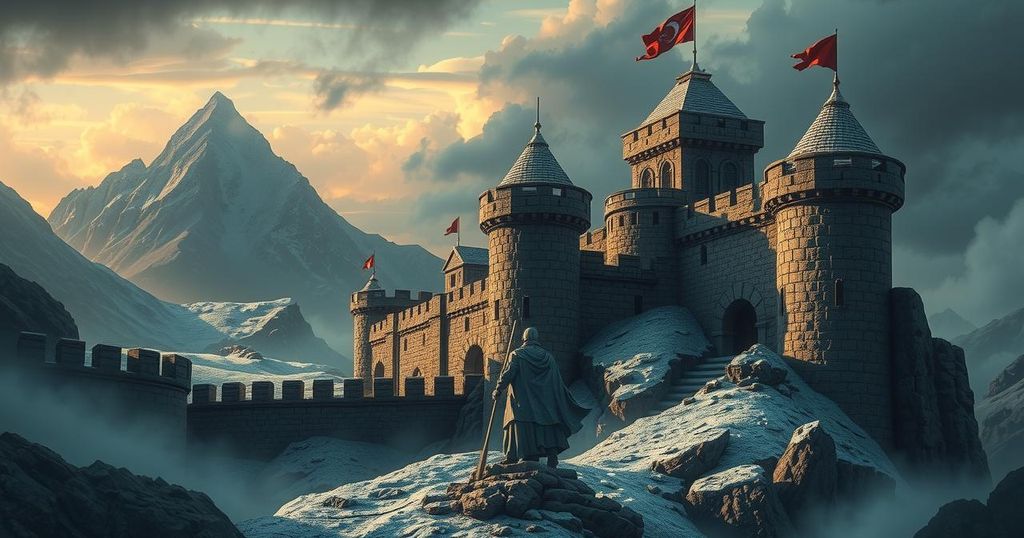M23 rebels, supported by Rwanda, claim control of Goma amid escalating conflict, with local residents fleeing the violence. Government forces face surrender conditions set by the rebels, heightening concerns over regional stability and humanitarian crises. DRC officials accuse Rwanda of aggression, while the situation remains critical for the displaced populations.
The M23 rebel group, backed by Rwanda, claims to have seized the eastern city of Goma in the Democratic Republic of the Congo (DRC), marking a rapid military escalation. M23 spokesperson Lawrence Kanyuka urged Goma’s residents to remain calm, stating that the city’s liberation had been successful and that the situation remained under control. However, reports from the city indicated firefight activity near strategic locations including the airport and the city center.
As tensions surged, the rebels had demanded that government forces surrender by early Monday morning, with reports confirming that 100 Congolese soldiers surrendered their arms to Uruguayan troops part of the UN peacekeeping mission. Concurrently, Monusco personnel and their families were evacuating to Rwanda, anticipating a worsening situation.
The eastern DRC is entrenched in conflict, influenced by historical tensions following the 1994 Rwandan genocide, which led to the emergence of various militia groups. According to UN special representative Bintou Keita, M23 forces have entered Goma’s outskirts, causing widespread panic and employing local residents as shields during their advance.
Thérèse Kayikwamba Wagner, DRC’s foreign minister, accused Rwanda of direct aggression, characterizing it as a declared war. In response, Rwanda’s representative to the UN, Ernest Rwamucyo, did not address the accusations directly, instead attributing the unrest to the DRC government’s failure to pursue peace actively.
M23 asserts that its operations are intended to safeguard the ethnic Tutsi community within the DRC. This rebel group previously occupied Goma in 2012 but withdrew after international backlash against Rwanda’s support. The resurgence of M23 since late 2021 raises concerns about exacerbating an already critical humanitarian crisis, with over one-third of North Kivu’s population displaced.
The situation in eastern DRC is characterized by long-standing tensions and conflict stemming from the aftermath of the 1994 Rwandan genocide. The emergence of various armed groups, including M23, has complicated the security dynamics in the region. M23’s claim over Goma highlights the fragility of peace in the area and the implications for regional stability, particularly considering the historical context of violence and humanitarian crises that have affected millions.
In summary, the M23 rebel group’s recent claims around the occupation of Goma signal potential escalation in the ongoing conflict in eastern DRC. With thousands displaced and intensified military engagements, the international community must carefully monitor the situation. The historical context underscores the need for comprehensive peace efforts to address not only the immediate violence but also the underlying tensions that have perpetuated cycles of conflict in the region.
Original Source: www.theguardian.com






